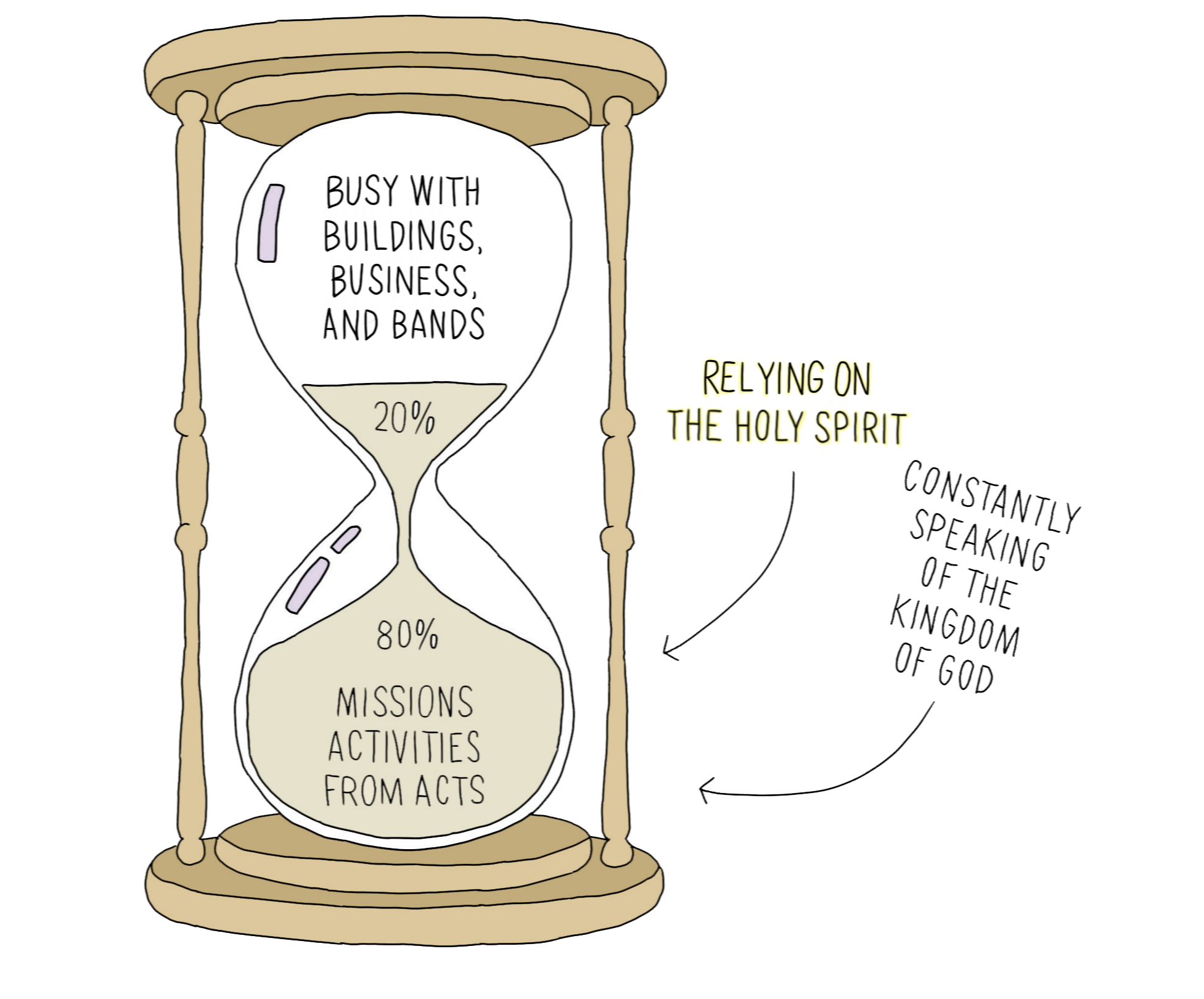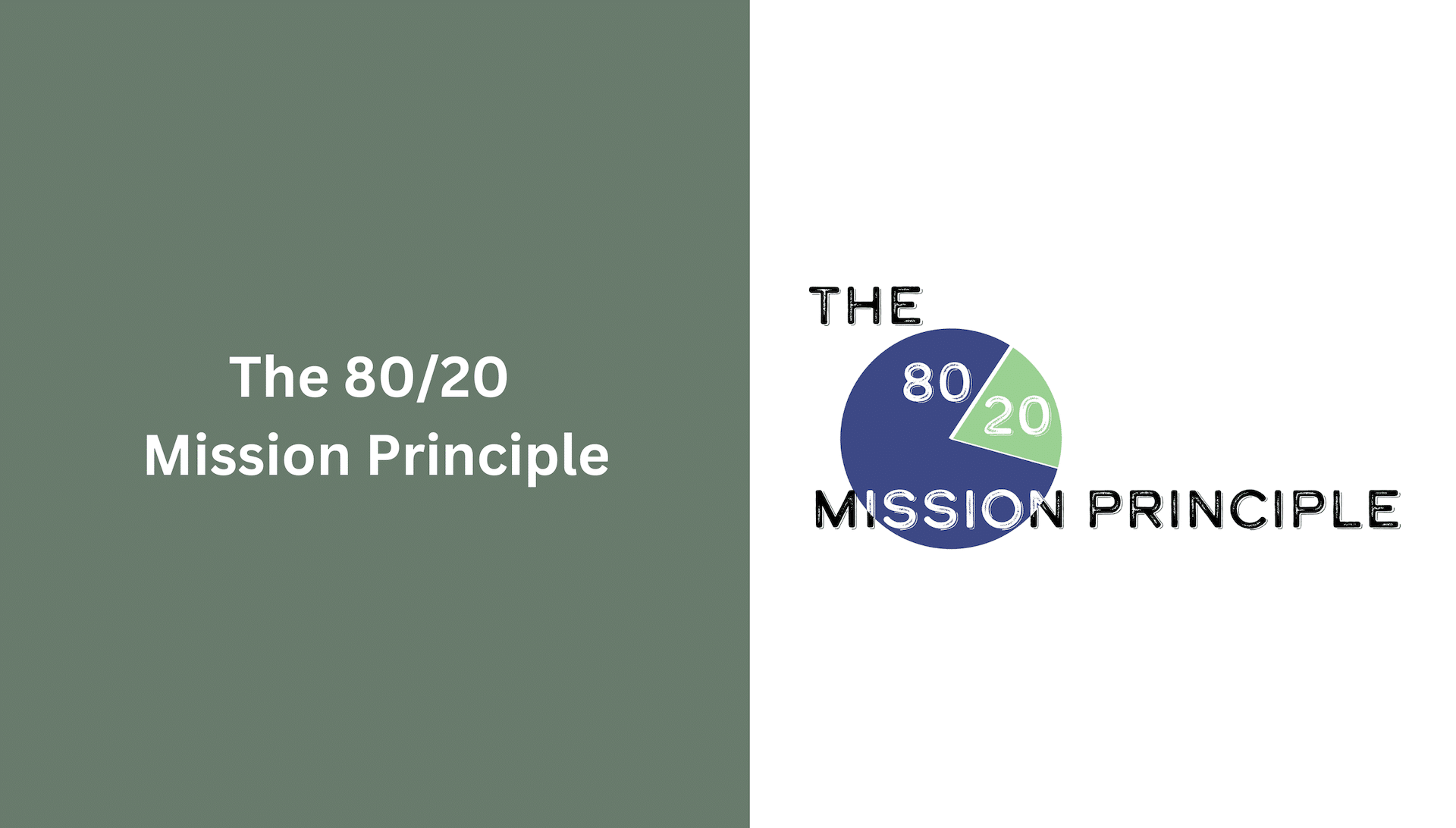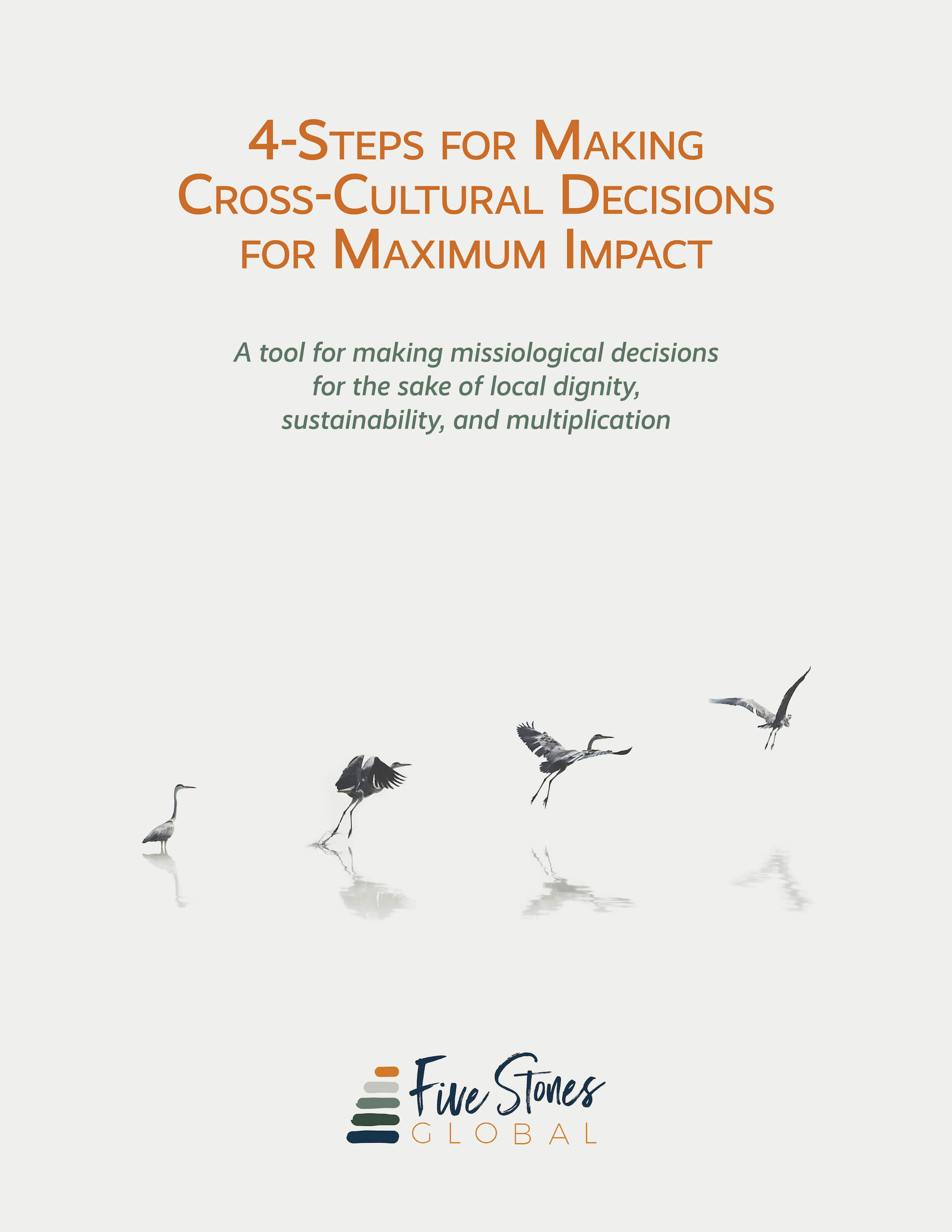Imagine this . . .
You go to a global mission training hoping to learn all you can and the trainer hands you the Book of Acts and then dismisses you, saying, “Here is your manual. Read it. Pray it. Follow it.”
What would our mission strategies consist of if we allowed the Book of Acts to thoroughly permeate and shape our approaches? How would our postmodern day acts of the apostles be different if our American worldview didn’t drive our mission methodology so broadly and intensely?
Have you ever heard of the 80/20 rule for nutritious eating? Basically, the rule says that we should eat healthy 80% of the time and limit our “fun foods” to 20% of the time. It would look something like this:

Let’s apply this 80/20 principle to our mission strategies. If you broke down your mission activities, what would represent the 80% and 20%? Would the 80% be filled with activities from the Book of Acts and the 20% filled with extraneous activities not evident in the Bible but driven by our Western worldview? Or would it be the other way around?

In their book, The Church As Movement, J. R. Woodward and Dan White Jr. write:
The church as industrial complex has become the dominant lens for the church. Today, many churches believe their survival and success depends on collecting and consolidating more resources, programs, paid staff, property and people in attendance . . . Church as industrial complex unintentionally turns spirituality into a product, church growth into a race, leadership into a business and members into consumers.1
Whether we admit it or not, collecting and consolidating more resources, programs, paid staff, property, and people in attendance have intensely shaped our ecclesiology and in turn our missiology. The problem is while affluent America can sustain and perpetuate this type of church to some degree, most around the majority world cannot.

Furthermore, all of these elements consume huge amounts of time, resources, and energy of mission workers, and yet none of these were essential to Jesus’ or the apostles’ success.
For our purposes, we will use the terms: buildings, business, and bands to represent the many activities that take time away from our “acts of the apostles” in our mission work.

Buildings stand for being busy with activities that relate to institutionalism such as construction, staffing, offices, maintenance, storage, parking, governance, conferences, etc.
Business stands for being busy with that which relates to enterprise such as branding, marketing, budgets, accounting, fundraising, meetings, personnel management, hiring, firing, paying salaries, etc.


Bands stand for being busy with activities that relate to performance such as leading and sustaining professionalized worship, sound, video, lighting, online digital presence, tech directors, top-notch programs for every age group, etc.
None of these things are bad in and of themselves, but if our mission manual was the Bible, how much time would we spend on buildings, business, and bands versus other apostolic activities?

Our hope is to invite you to make your 80% that which worked for Jesus and the apostles, rather than that which has snuck into our missiology and daily mission activities. We will be calling this blog series, “The 80/20 Mission Principle.”

We trust that recovering and rejuvenating the acts of the apostles until it becomes the majority rather than the minority of your mission work will assist you in participating in Jesus’ Great Commission to your utmost.
Next week, we will start out with our first 80/20 Mission Principle from the book of Acts.


